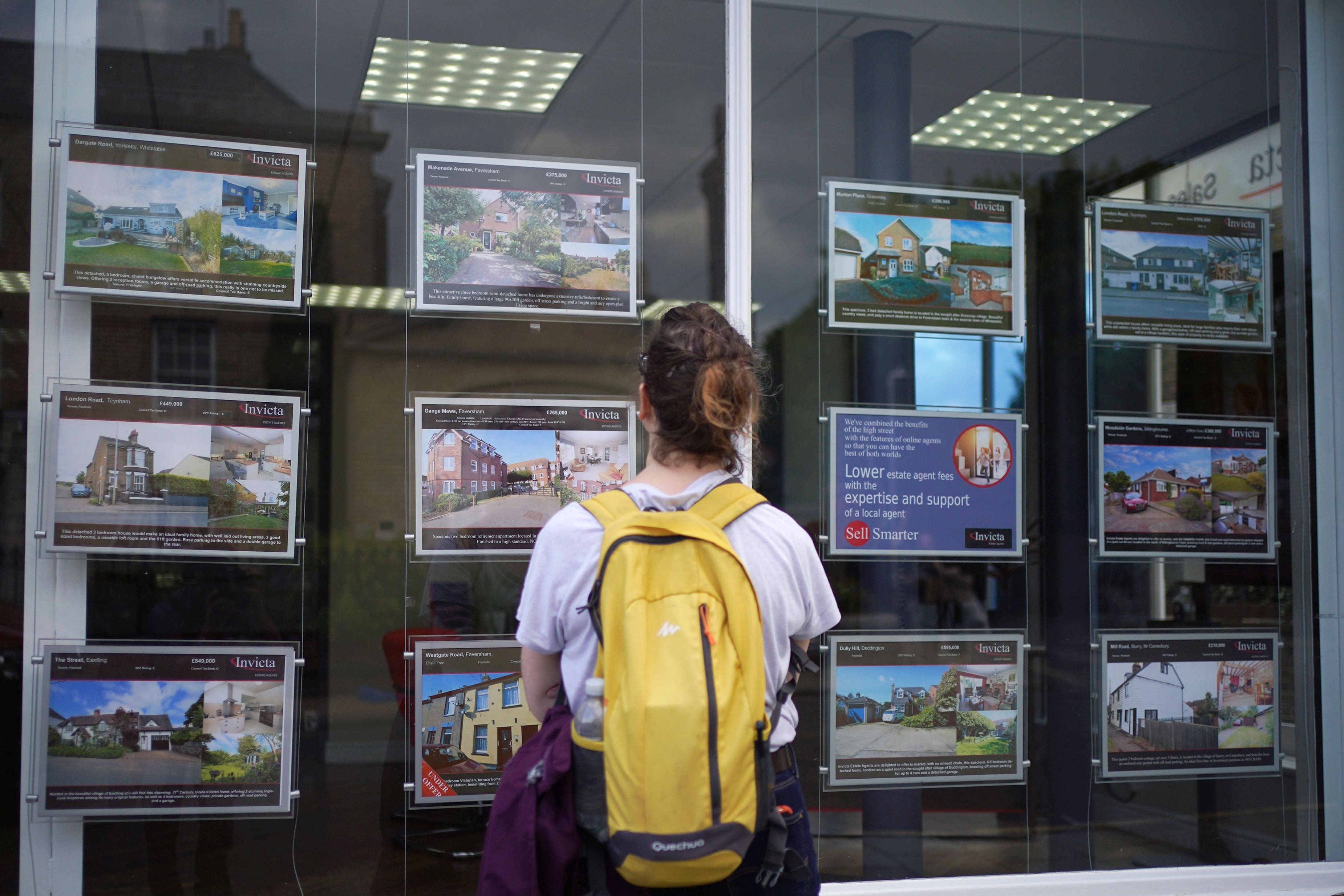UK house prices inch higher but ‘rapid rebound’ in property market unlikely
House prices inched up by 0.2% last month, compared with October, Nationwide revealed in its monthly House Price Index.

UK house prices rose for the third month in a row in November, as hopes of mortgage costs coming down and rising wages has helped warm up demand across the property market, according to Nationwide Building Society.
House prices inched up by 0.2% last month, compared with October, Nationwide revealed in its monthly House Price Index.
Property values were 2% lower in November than a year ago, easing from the 3.3% year-on-year decline seen in October.
Across the UK, the average property cost £258,557 in November.
There has been a significant change in market expectations for the future path of bank rate in recent months which, if sustained, could provide much needed support for housing market activity
Robert Gardner, Nationwide’s chief economist, said the year-on-year fall in house prices remains “weak” but is the “strongest outturn in nine months”.
He said: “There has been a significant change in market expectations for the future path of bank rate in recent months which, if sustained, could provide much needed support for housing market activity.”
Bank of England policymakers decided to hold interest rates at 5.25% last month, raising expectations that borrowing costs could have reached a peak and will start to come down in the year ahead.
The shift in expectations is important because it has led to a decline in longer-term interest rates, known as swap rates, which underpin mortgage pricing.
“If sustained, this will help to ease the affordability pressures that have been stifling housing market activity in recent quarters, where the number of mortgage approvals for house purchases has been running at around 30% below pre-pandemic levels,” Mr Gardner said.
Nevertheless, a rapid rebound still appears unlikely
Modestly lower borrowing costs coupled with rising wages and falling or slower house prices should help prompt an uplift in activity in the housing market in the months ahead, he said.
“Nevertheless, a rapid rebound still appears unlikely,” Mr Gardner stressed.
“Cost-of-living pressures are easing, with the rate of inflation now running below the rate of average wage growth, but consumer confidence remains weak, and surveyors continue to report subdued levels of new buyer enquiries.”
Bank of England governor Andrew Bailey has insisted that it is “much too early” for policymakers to think about cutting rates, as they continue their work to bring down inflation.
Tom Bill, head of UK residential research at estate agency Knight Frank, said: “If we are not at the bottom of the current slowdown in the UK housing market, we must be close.
“Price indices are potentially more volatile due to low transaction numbers but sentiment has improved in recent weeks as the worst of the economic data moves behind us.”
However, Gabriella Dickens, a senior economist at Pantheon Macroeconomics, said the rise in Nationwide’s index over the last few months is likely to reverse in the near-term, adding that “a material recovery in house prices still looks a few months away yet”.
“The outlook for next year, however, is brighter,” she added.
“The recent drop in market expectations for bank rate means mortgage rates now look set to fall further and faster than we previously had anticipated.”
The average two-year fixed residential mortgage stood at 6.05% on Thursday, as it edges closer to dropping below the 6% mark, according to data from Moneyfacts.
Bookmark popover
Removed from bookmarks